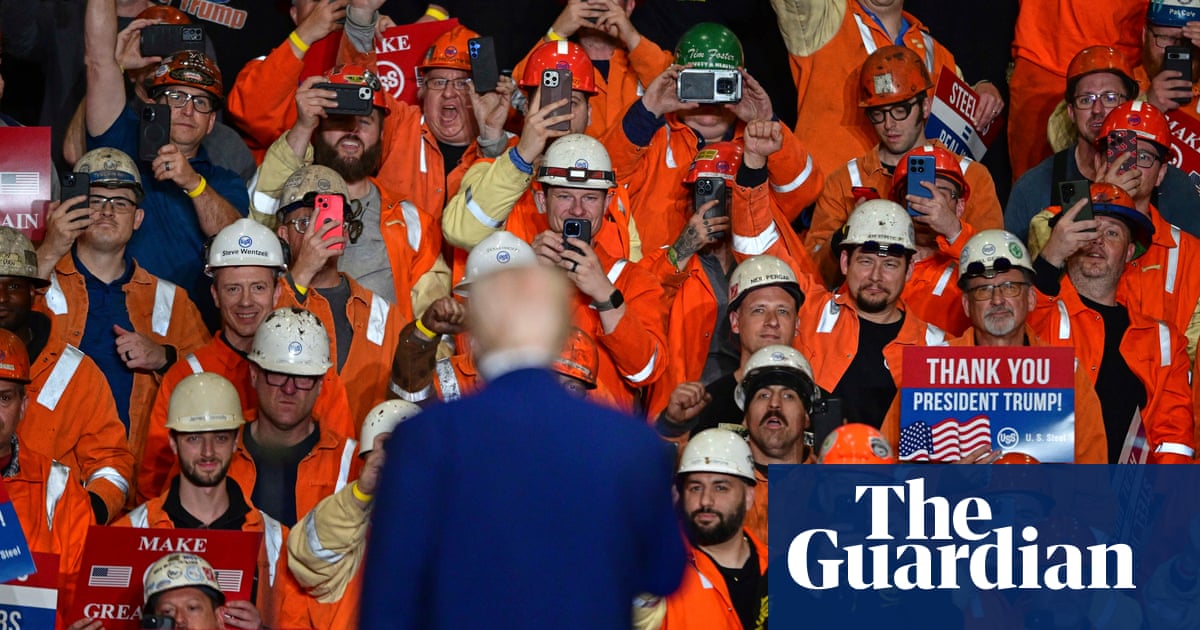Donald Trump on Friday signed an executive order paving the way for a Nippon Steel investment in US Steel, so long as the Japanese company complies with a “national security agreement” submitted by the federal government.
Trump’s order did not detail the terms of the national security agreement. But US Steel and Nippon Steel said in a joint statement that the agreement stipulates that approximately $11bn in new investments will be made by 2028 and includes giving the US government a “golden share” – essentially veto power to ensure the country’s national security interests are protected.
“We thank President Trump and his administration for their bold leadership and strong support for our historic partnership,” the two companies said. “This partnership will bring a massive investment that will support our communities and families for generations to come. We look forward to putting our commitments into action to make American steelmaking and manufacturing great again.”
The companies have completed a Department of Justice review and received all necessary regulatory approvals, the statement said.
“The partnership is expected to be finalized promptly,” the statement said.
The companies offered few details on how the golden share would work and what investments would be made.
Trump said Thursday that he would as president have “total control” of what US Steel did as part of the investment.
Trump said then that the deal would preserve “51% ownership by Americans”. The Japan-based steelmaker had been offering nearly $15bn to purchase the Pittsburgh-based US Steel in a merger that had been delayed on national security concerns starting during Joe Biden’s presidency. Trump opposed the purchase while campaigning for the White House, yet he expressed optimism in working out an arrangement once in office.
“We have a golden share, which I control,” said Trump, although it was unclear what he meant by suggesting that the federal government would determine what US Steel does as a company.
Trump added that he was “a little concerned” about what presidents other than him would do with their golden share, “but that gives you total control”.
Still, Nippon Steel has never said it was backing off its bid to buy and control US Steel as a wholly owned subsidiary.
The proposed merger had been under review by the Committee on Foreign Investment in the United States, or CFIUS, during the Trump and Biden administrations.
The order signed Friday by Trump said the CFIUS review provided “credible evidence” that Nippon Steel “might take action that threatens to impair the national security of the United States”, but such risks might be “adequately mitigated” by approving the proposed national security agreement.
The order does not detail the perceived national security risk and only provides a timeline for the national security agreement. The White House declined to provide details on the terms of the agreement.
The order said the draft agreement was submitted to US Steel and Nippon Steel on Friday. The two companies must successfully execute the agreement as decided by the treasury department and other federal agencies that are part CFIUS by the closing date of the transaction.
Trump reserves the authority to issue further actions regarding the investment as part of the order he signed on Friday.
